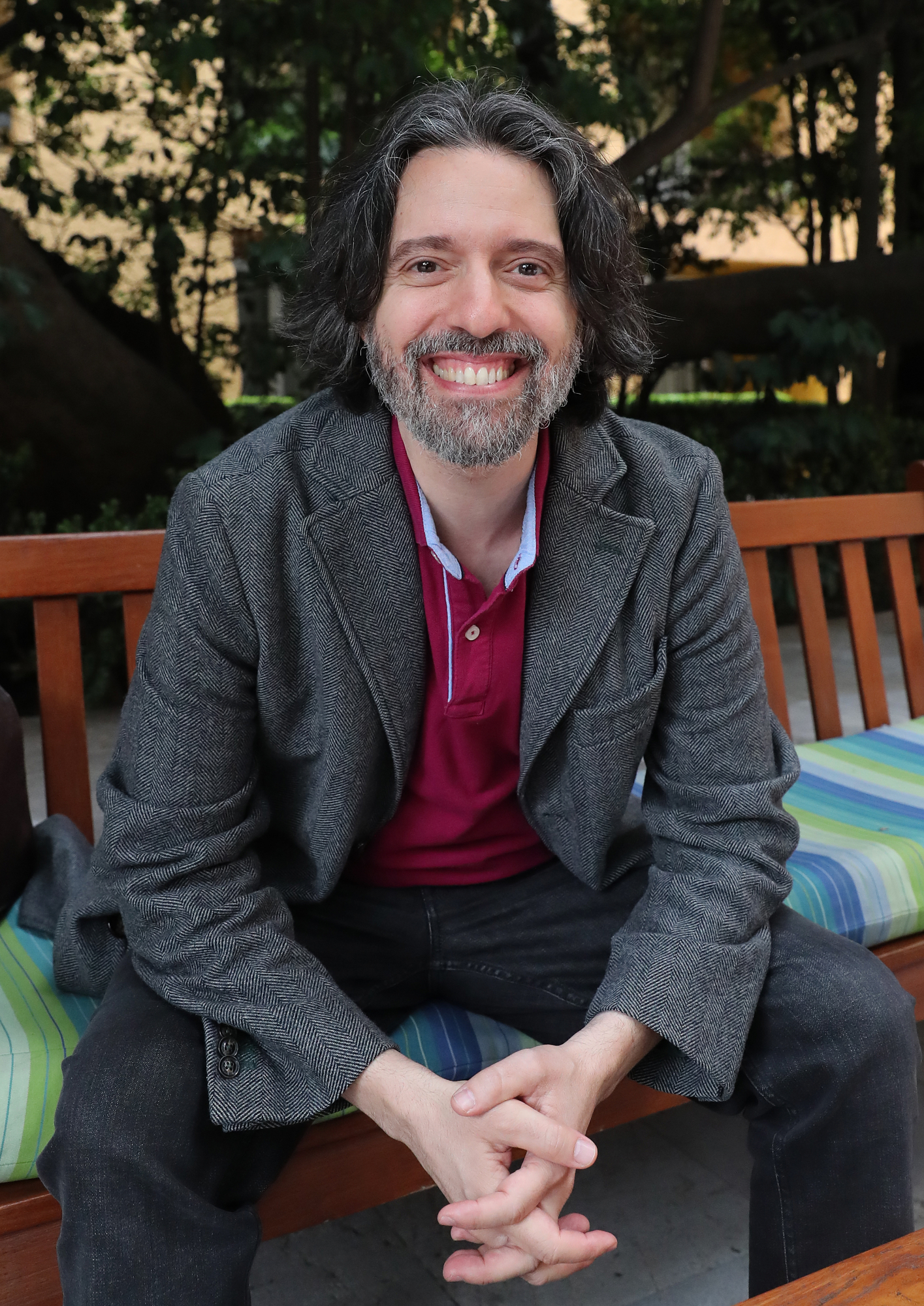'María Moliner lovingly changed the Spanish language': Andrés Neuman on his latest book

"What words should I choose to narrate a novel about a woman who knew them all?" asks Argentine writer Andrés Neuman about his latest book dedicated to María Moliner (1900-1981), the creator of the dictionary that "changed the Spanish language by linking affection and intellect" with a "migrant ear" capable of hearing even the echoes of Latin America.
With "intimidation and admiration" for the 80,000 words in the 'Dictionary of Spanish Usage', the philologist studied the Spanish woman's 81 years to write 'Until She Begins to Shine', a work that gives "flesh and blood" to "the poet of the language," who would have been the first woman to enter the Royal Spanish Academy (RAE) had she not been rejected in 1972.
The winner of the Alfaguara Prize (2009) knew that delving into the brilliant mind that redefined the lexicon in the midst of the Franco dictatorship with words like 'mother' - previously understood by the RAE as "female who has given birth" to "woman who has or has had children" - was a more intimate than cerebral task.
A brilliant grandmother To do so, she invented a "trick" that inhabited the historian's most affectionate memories, such as those of her childhood, when her father abandoned her to migrate to Buenos Aires, or those of her adulthood, a time when she reformed the Spanish library system and, at the same time, gave birth five times and faced the death of her first daughter, María.
“I pretended to be my grandmother, because the idea was to escape the formality of those years of study. So pretending I could have been her grandson brought her closer to me as a real-life character, with her doubts, contradictions, and conflicts,” she confesses, adding that her novel is also dedicated to grandmothers, the “frequent readers” of dictionaries.
With a smile that closes her eyes, Neuman analyzes Moliner's migrant cartography, which set foot in Latin America through the exchange of letters that her father sent her from Argentina or those that Luis Buñuel sent her from Mexico as a lover, but also through her sister, Matilde, one of the first women to write a doctoral thesis in Spain, which, precisely, investigated the independence processes in the region.

Neuman is a philologist. Photo: EFE
Within Spain, she explains, the lexicographer was "an internal migrant" who was displaced by the threats and economic hardship of the Civil War and the dictatorship. Her birthplace is Aragon, but her "migrant ear" heard the Spanish of Castile and León, Andalusia, Madrid, and even the Catalan of her husband, Fernando Ramón.
Rescuing Moliner from “extinction” That ear capable of summarizing so many voices in nearly 3,000 pages is more relevant than ever, the author asserts, and the irony is that it is "in danger of extinction because it isn't digitized." He even maintains that he wrote this text to revive his "lexicographical example" in this century where language is being so "debased and distorted."
“Currently, there is a dispute over the meaning of some words, such as 'freedom,'” she explains. That's why “Moliner is so necessary,” as she was the one who “wanted to make precise, fair, and generous use of words, starting with the definition of mother or love (...) She can remind the speaking community not only of their language, but also what it means to feel it,” she affirms.
For now, Neuman's efforts to sow in writing the exploits of possibly the most knowledgeable woman in the Spanish language have reached the door of the librarian's last home—on Don Quijote Street in Madrid—where María Moliner's granddaughters are excitedly stacking the text that pays homage to their grandmother's unique brilliance.
“Doña María belongs to everyone (...) but she had 13 grandchildren, and one day two of them came to the presentation of 'Until It Begins to Shine', one of the most moving and terrifying things that has ever happened to me,” she reveals with a feeling of relief because the grandmother she imagined and the one who lives in the hearts of the Moliner family are equally “endearing.”
eltiempo





